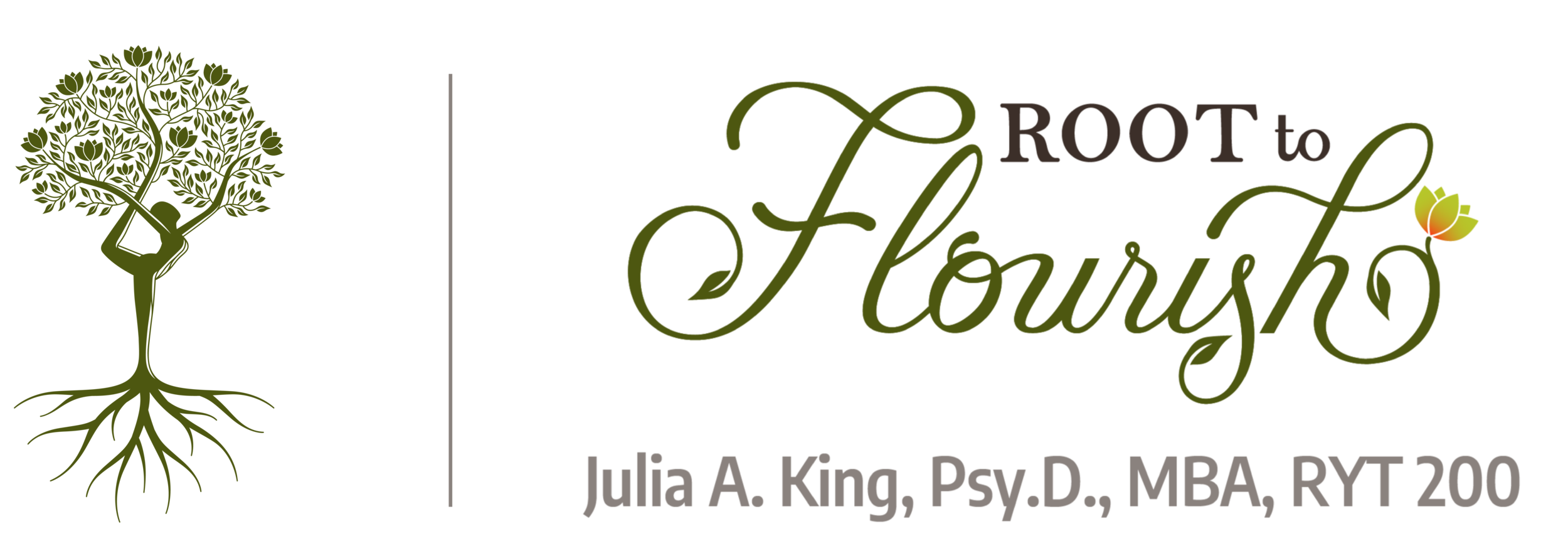How I accidentally became a therapist
“It’s tough to make predictions, especially about the future.”
— Yogi Berra
How to create a career as a forensic psychologist
I was a forensic psychologist for over a decade. And, I really liked the work.
I was never going to be a therapist. In fact, I was adamant about it. And, truly had no interest. It was known in my graduate school program that Julia was definitely not going to become a therapist.
I went to graduate school interested in pursuing a career in forensic psychology. I specialized my coursework, and practicum and internship placements, where I could in the area of forensics, tolerating my therapy coursework and rotations. I completed a post-doctoral fellowship in forensic psychology after graduation, and then the stars aligned to allow me to land a coveted position as a Director of Forensic Services once I was licensed. After several years, I left that role to create a thriving private practice where I was hired by courts and attorneys to perform forensic evaluations.
I really enjoyed the work. I had a thriving business. And, I had no (conscious) thought to disrupt it.
Neat and tidy.
Or, so I thought …
The dangers of yoga teacher training, or how yoga screwed up my neat and tidy life
I entered a 200-hour yoga teacher training program with no intention to pursue a career teaching yoga, or using what I learned professionally in any way. I had an established yoga practice. I love being in school. I simply wanted to learn more about yoga, and deepen my own practice, in the company of other seekers.
During this training, which - I do not exaggerate - changed my life, I began meditating regularly. As I’d hoped, I dedicated myself to a regular practice of connecting to my body. And, I began to read and study the ancient yogic texts. To my surprise, much of what the yogis had to say about emotional wellbeing and behavior echoed what I had learned as a psychology graduate student with regard to therapeutic approaches. I was intrigued. I became fascinated by the connections, and the overlap, between psychology and yoga; I investigated further, taking lots of trainings in both therapy and yoga, fueled by curiosity, deepening my knowledge and expertise. This exploration led to a passion and enthusiasm I could in no way have anticipated for the transformative power of these practices in my own life, and in my ability to help others change their lives.
So … now I had a dilemma.
I had a thriving forensic therapy practice, and still enjoyed the work. But, I was also now starting to wonder if I could translate this curiosity and passion, and my brand new skills, and also, my unearthed but newly polished foundational skills from graduate school, in some way.
But … what and how? I had no plan…
Planning, and the fallacy of control
Planning - and having a plan - is a comfort to many people, particularly people who struggle with anxiety.
I was - in a former life - very much a planner. A box checker. A detailed list maker.
I took satisfaction in making plans, and in reviewing plans.
My use of the word “comfort” in this context is intentional. Because, planning, while in some contexts is absolutely necessary, it also had a seedy underbelly of making us feel like we are in control when we most definitely are not. It’s an attempt to deny uncertainty. We feel that if we plan - and decide - to do something, that because we planned and decided to do it, it will happen, and we sigh in relief.
But, it’s false relief. It’s a fallacy.
Because the fact that we planned and decided, of course, means nothing. It’s just our best guess.
“Doing a 180” … a massive shift in identity
I captured much of the subsequent steps I took to transition my work from forensics to therapy in a prior blog post, ‘The Courage of Living Courageously,’ where I explore the transformative power that comes from, what I call, ‘Allowing,’ which is the polar opposite of planning and deciding. There are also some concrete steps on how to begin ‘Allowing’ in that post as well. (Note: You can also hear me discuss this shift in my practice with Dr. Tamara Soles on her ‘This Hour Has 50 Minutes’ podcast!)
For purposes of this discussion, though, let’s expand on the role identity played in this shift …
How do you go from “knowing” you don’t want to do something, to making a 180 degree turn directly toward doing the thing?
Well … you don’t …
The 180 degree turn is gradual (my transition took three years, from considering the idea to completely eliminating my forensic practice). But, more importantly, it involves a very significant identity shift …
I loved being a forensic psychologist. And … I loved telling people I was a forensic psychologist. It was a very cool job.
To make this shift, I had to:
come to terms with what it would mean for who I was: that is, who I believed myself to be, and, also, how I perceived that I would be viewed by others, if I were a) no longer a forensic psychologist, and b) instead a practicing therapist
be willing to say I was ‘wrong.’ That I was abandoning the plan I’d made and had executed so beautifully.
be willing to inconvenience myself and overcome all of my own objections to why this was a bad idea. Remember, I had a forensic practice that was humming along nicely. I hadn’t practiced therapy in 10 years which required me to take trainings, brush up on my skills, find a consultation group, build a therapy referral network … and on and on …
had to ‘ Allow’ and embrace uncertainty, trusting my curiosity and intuition to guide me, letting go of the comfort that planning and deciding had previously (supposedly, because we know now it’s avoidance, yes?) provided.
“Embrace uncertainty. Some of the most beautiful chapters of our lives won’t have a title until much later.”
-- Bob Goff
How the hell did I get here?
So … if, 7 years ago, you told me, I would:
no longer be a forensic psychologist
be a practicing therapist … and loving it
be living in New York City (as I lived in Cincinnati 7 years ago and also had no intention of living in New York)
I would have taken that bet. Laughed in your face. Asked if you had actually met me. And, told you you were off your nut!
My core is the same, but I’m a very different person, living a very different life, than I was 7 years ago.
And, it’s due to a very significant mindset shift, marked by several keys:
We can plan all we want … but we have no control. Allow that knowledge to free you.
Curiosity is key. Allow it to guide your life.
Always needing to be right can toxically limit your life. Allow yourself to be wrong.
Embrace uncertainty. The magic happens outside your comfort zone. Allow. Allow. Allow.
And, where am I going?
I find myself in a similar - but much less dramatic - place today. (Note: If you’re a current therapy client reading this, no, I am not shutting down my therapy practice.)
But, similar in that I am questioning and evaluating and pondering … and CURIOUS … and, most importantly, ALLOWING … with regard to my next steps…
This time it’s not yoga screwing up my life … but this book, Four Thousand Weeks: Time Management for Mortals by Oliver Burkeman. I have previously, and will continue to encourage everyone I meet to READ IT.
Much of the information in this book is, at least to me, not new, but I think I’m reading it - and just reread it - at exactly the right time …
So, I’m going to take some time away, to further ponder, question, evaluate, reflect, and feed my curiosity … and I’ll be back to you after Labor Day …
Stay tuned …

